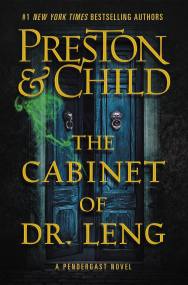Promotion
Use code MOM24 for 20% off site wide + free shipping over $45
The Obsidian Chamber
Contributors
Formats and Prices
Price
$10.99Price
$14.99 CADFormat
Format:
This item is a preorder. Your payment method will be charged immediately, and the product is expected to ship on or around April 25, 2017. This date is subject to change due to shipping delays beyond our control.
Also available from:
After Pendergast is presumed dead from a supernatural encounter, his bodyguard Proctor is the only one who can chase a kidnapper across international waters and into the deadly unknown.
After a harrowing, otherworldly confrontation on the shores of Exmouth, Massachusetts, Special Agent A.X.L. Pendergast is missing, presumed dead.
A SHOCKING RETURN
Sick with grief, Pendergast’s ward, Constance, retreats to her chambers beneath the family mansion at 891 Riverside Drive–only to be taken captive by a shadowy figure from the past.
AN INTERNATIONAL MANHUNT
Proctor, Pendergast’s longtime bodyguard, springs to action, chasing Constance’s kidnapper through cities, across oceans, and into wastelands unknown.
BUT IN A WORLD OF BLACK AND WHITE, NOTHING IS AS IT SEEMS
And by the time Proctor discovers the truth, a terrifying engine has stirred-and it may already be too late . . .
Genre:
- On Sale
- Apr 25, 2017
- Page Count
- 496 pages
- Publisher
- Grand Central Publishing
- ISBN-13
- 9781455536894
Newsletter Signup
By clicking ‘Sign Up,’ I acknowledge that I have read and agree to Hachette Book Group’s Privacy Policy and Terms of Use

































